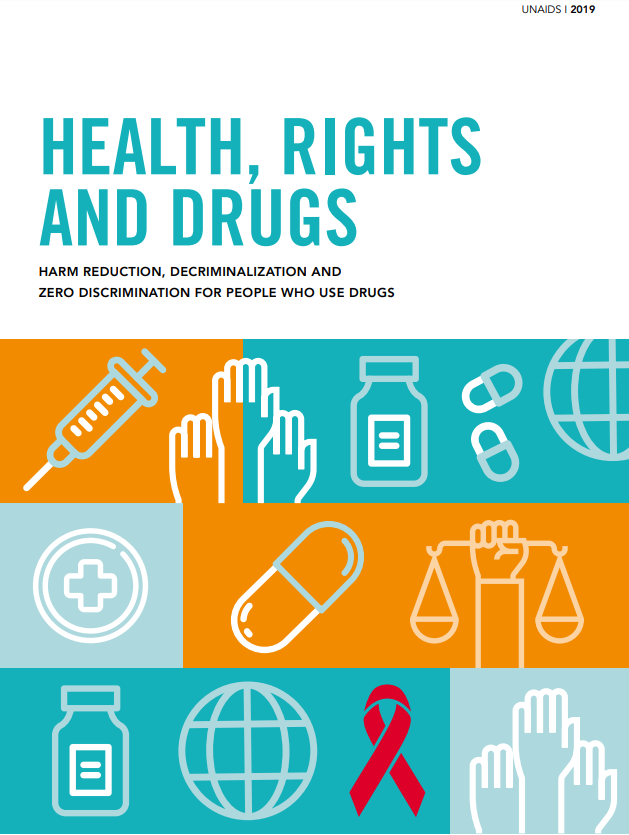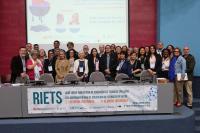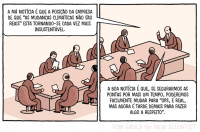UNAIDS report highlights the urgency of reaching people who use drugs to reduce HIV infections

A report released on March 13 by UNAIDS shows that the incidence of the virus shows signs that is growing among people who inject drugs (1.2% in 2011 to 1.4% in 2017). This trend is against the global decline in new HIV infections in the general population, of around 25% between 2010 and 2017.
The report also shows that 99% of people who inject drugs live in countries that do not offer adequate coverage of harm reduction services.
"UNAIDS is very concerned about the lack of progress in dealing with people who inject drugs, which happens due to the failure of many countries to implement evidence-based approaches and human rights for the use of drugs," said Michel Sidibé , Executive Director of UNAIDS. "By putting people at the center and ensure they have access to social and health services with dignity and without discrimination or criminalization, we can save lives and reduce new HIV infections dramatically."
The new UNAIDS report, health, rights and drugs: harm reduction, decriminalization and zero discrimination for people who use drugs , shows that of the 10.4 million people who injected drugs in 2016, more than half lived with hepatitis C and one in eight living with HIV. The report highlights that the availability of comprehensive services of harm reduction, including replacement of needle and syringe programs, addiction treatment and drug testing and treatment of HIV-will start the interruption of new HIV infections among people who use drugs.
However, few of the UN Member States have complied with the agreed in 2016, the final document of the Special Session of the UN General Assembly on the World Drug Problem, in establishing effective public health measures to improve health outcomes of people who use drugs.
The report points out that while the decriminalization of drug use and possession for personal use to increase the supply, access and linkage to health services and harm reduction, criminalization and harsh punishments remain common. It is estimated that one in five people arrested worldwide are incarcerated for drug-related offenses, 80% of whom are in prison for possession for personal use. In addition, the report lists 35 countries that retain the death penalty for drug offenses.
UNAIDS supports the full engagement of civil society as an essential source of information and mobilization, advocacy and services led by the community, especially in places where the repressive policies and practices are the norm. In addition, UNAIDS calls for sufficient funding for human rights programs and health services that include harm reduction and HIV services, responses led by social and community facilitators and the end of stigma and discrimination related to drugs and HIV.
The report health, rights and drugs highlights that despite the effectiveness of harm reduction, investments in harm reduction measures are far short of what is required for an effective response to HIV. 31 low- and middle - income countries that reported data to UNAIDS, 71% of spending on HIV services for people who use drugs were funded by external donors.
While some countries have made progress implementing evidence-based approaches and human rights, most are still long overdue. Prior to the ministerial segment of the Commission on Narcotic Drugs, which begins on March 14, 2019 in Vienna, Austria, UNAIDS is encouraging governments to revisit and refocus their approaches to drug policy, putting people at the center and linking human rights to public health.
UNAIDS outlined a set of recommendations for countries to adopt, including:
-
Full implementation of comprehensive harm reduction and HIV services including needle and syringe programs substitution, replacement therapy opioid overdose with naloxone management and safe consumption rooms;
-
Ensure that all people who use drugs have access to prevention, testing and treatment can save lives for HIV, tuberculosis, viral hepatitis and sexually transmitted infections;
-
Decriminalize the use and possession of drugs for personal use. Where drugs remain illegal, countries must adapt and reform laws to ensure that people who use drugs have access to justice, including legal services, and do not face punitive or coercive sanctions for personal use;
-
Take measures to eliminate all forms of stigma and discrimination related to people who use drugs;
-
Support the full engagement of civil society as a source of information and promote services and advocacyled by the community, especially in places where the repressive policies and practices are the norm;
-
Investing in human rights programs and health services, including comprehensive harm reduction package and HIV services, answers led by community and social facilitators.
See the full report here: health, rights and drugs: harm reduction, decriminalization and zero discrimination for people who use drugs



